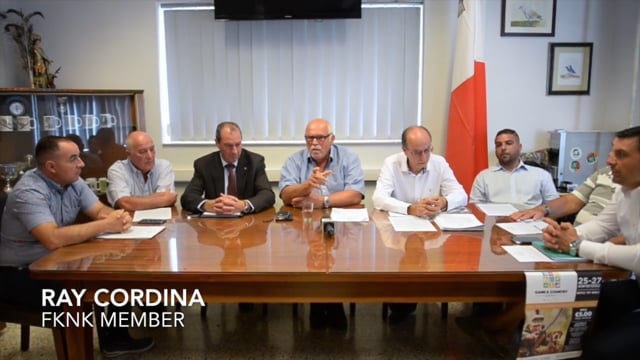[WATCH] Hunters insist EU court opinion on trapping is 'unjust, mistaken and discriminatory'
Hunting federation FKNK says trapping is allowed in other countries using the same methods as those used in Malta


The Hunting and Conservation Federation (FKNK) has insisted that Maltese trappers were being forced to go through unnecessary obstacles to apply two derogation in what was a clear sign that they were being discriminated against by the European Commission.
Speaking at a press conference, FKNK representative Raymond Cordina insisted that Maltese trappers should be granted the same rights enjoyed by other European trappers.
“Why is it that there have been this many obstacles for Malta to apply two simple derogations for it to preserve traditional hunting and trapping when every year over 5,000 derogations from the Birds Directive by other EU member states,” said Cordina.
Cordina insisted that trapping using the same “traditional” methods used in Malta was legal in other European countries. He said that in Austria, the government “cherished” and wanted to preserve traditional trapping for its citizens to the extent that it had obtained recognition of the practice as an Intangible Cultural Heritage by UNCESCO.
“Even before the recognition by UNESCO, Austria had never been stopped by the Commission from applying derogations to allow the trapping of song birds, on the basis of tradition,” said Cordina.
Moreover, he said there were a number of errors in the opinion delivered last week, adding that the opinion had also ignored the government’s defence of trapping in Malta.
The opinion which was delivered last week in Luxembourg by Eleanor Sharpston, Advocate General at the European Court of Justice (ECJ), stated that the Court should rule that by opening a trapping season for finches, the Maltese government had clearly failed to fulfil its obligations to abide with the Wild Birds Directive.
Finch trapping is illegal under EU law, and only allowable under strict conditions. Malta re-opened its closed trapping season after Labour was elected to power, but the European Commission took the government to court in October 2015.
Among the “factual errors” in the opinion, said Cordina, was the fact that Sharpston stated that with a limit of 10 birds per trapper, 4,000 trappers could potentially catch 40,000 birds.
“The advocate general is totally ignoring the fact that there is a bag limit of 27,000 birds for the whole country and that once this limit is reached, the season is suspended,” said Cordina.
He said that the opinion contained prejudiced views of trappers and trapping in general.
"A section in the opinion is actually insulting,” said Cordina, referring to a hypothetical case of a country using bird feathers to make necklaces, which was described in the opinion. He insisted that this made Malta seem like a “third-world country” and one which had no place in the EU.
Finally, Cordina questioned whether BirdLife knew about the opinion before it was actually published since the eNGO had “declared victory and had hurled abuse at the government and the FKNK” immediately after the opinion was published.
MaltaToday pointed out that in Malta’s EU accession treaty it had been agreed that trapping would be phased out by 2009, and that finch trapping was illegal according to EU law, before questioning whether the FKNK was simply trying to delay the inevitable.
“You are making an assumption that many people make by saying that trapping of song birds is illegal and you have no right to make that assumption,” said Cordina. “We are in court precisely to determine whether the trapping of song birds is within the Birds Directive. We are saying it is not, and BirdLife and their merry band of friends are saying it is. Something which is still sub judice is still undecided.”
“Secondly, the transition process and pre-accession agreement was covered a particular period which is now over, so after this period ends we are still EU citizens and we have every right to use the Bird Directive and the rights it gives to derogate for practices,” continued Cordina.
Asked whether there was any case-law on the matter, Cordina said that there was “a lot of case-law that was in favour and some which was against”, insisting that each country had its own unique position, adding however that Austria’s derogation represented a flagrant precedent since it had not been taken to court.








.jpg)




.jpg)






.png)


